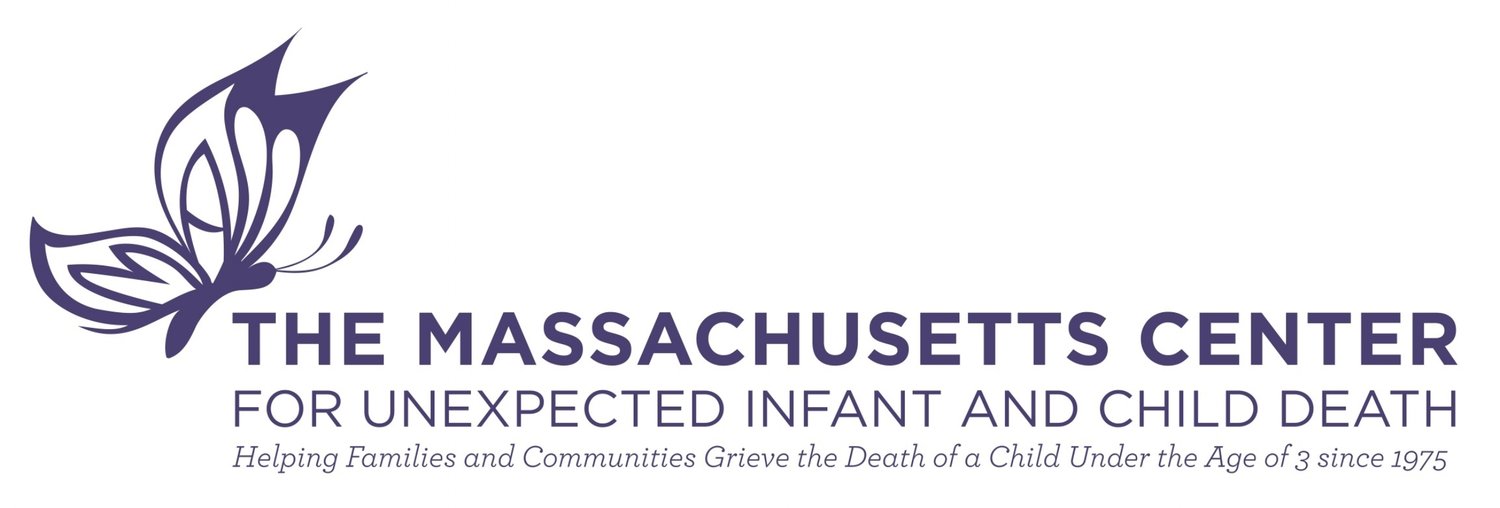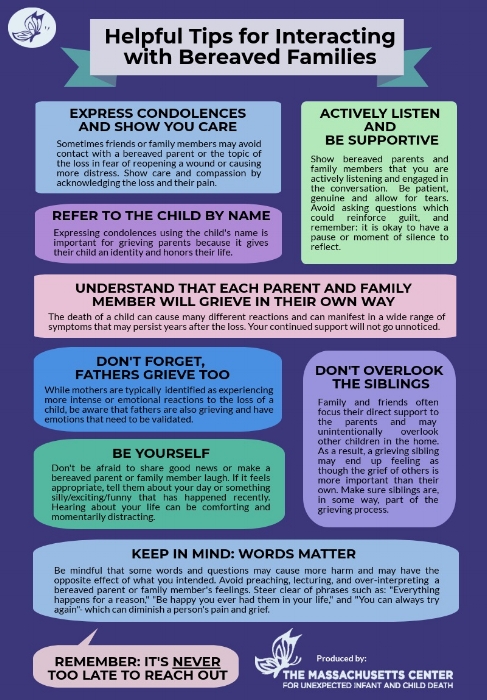As a friend or loved one of the family, it can be difficult to find the right thing to do or say. The death of a child is devastating, and it may seem that nothing can be said to soothe any of the pain. However, providing support can be incredibly meaningful to the family during such a hard time. It is normal that you may feel uncomfortable, but it is important to take the time to listen and show compassion.
Acknowledge the loss
You may be tempted to avoid the parent or avoid mentioning the loss of the baby because you are uncomfortable. It is far better to address the subject than to pretend nothing has happened. "I'm sorry", is always a good way to start.
Speak from your heart. Tell your friend that you care and let them know you are always willing to listen.
Remember the loss of a child affects both partners and that each need support.
What to avoid saying/doing
Some of the condolences commonly offered to grieving parents tend to minimize the baby's importance. Others try to explain why the baby died- something that can usually not be explained. Try to avoid the cliches such as, "It's for the best", "You can have more children" and "At least you didn't get to know the baby too well".
Do not have the expectation that a parent should be "over it" and move on after a short period of time. People move through the grieving process at their own pace. Grieving the loss of a baby may take months to years.
Click here for more helpful information on what to say/what not to say to grieving parents.
Let the parents talk about their baby if they want to. It is normal for you to feel some discomfort, as a baby's death is not an event that many people have experienced. Try to overcome your discomfort and let your friend know you are available to listen.
Continue to check in and ask how the parents are doing. Be prepared to listen whenever they want and need to talk about the loss. Be aware that certain dates may be particularly difficult such as: the anniversary of the baby's death, Mother's Day, Father's Day, holidays, the baby's due date, and birthdays.
If possible, offer to help in practical ways such as preparing meals, driving other children to school or after-school activities, babysitting, grocery shopping or doing housework.
Don't push them to participate in social activities, but continue to invite them.
Your ongoing friendship with someone who has lost a baby will mean a lot to a grieving parent. You may feel helpless because you are not able to make everything "okay". But by offering your support, compassion, and time, you are helping more than you will ever know.
Ways to help
"Just Show Up"
This information has been adapted from resources provided by Beth Israel Deaconess department of obstetrics and gynecology,
the Family Help and Healing Fund, and the Christina Pike Meisner Memorial Endowment Fund.

